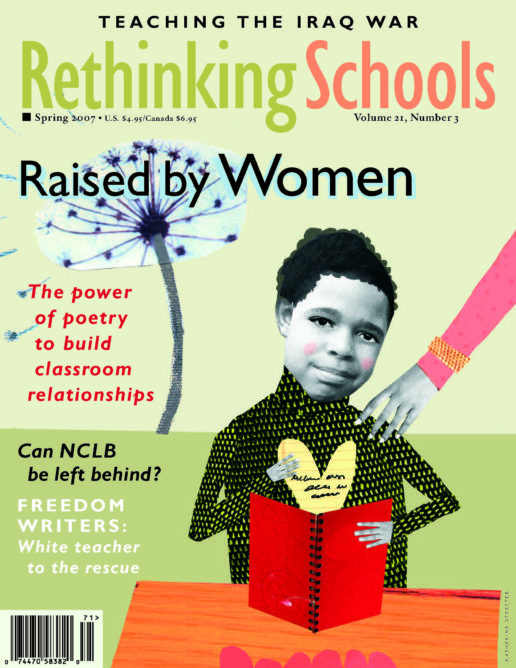Tom Mooney – Ohio’s Children Lose a Labor Leader
The death of Tom Mooney was a blow not only to Ohio teachers. The entire nation lost a champion who combined unionism with a passion for public education and the inherent worth of all children.
I remember the first time I met Tom, in the spring of 1988 shortly after our progressive caucus within the Cleveland Teachers Union (CTU) won a majority on the union’s Executive Board. I had heard of Tom’s innovative leadership as president of the Cincinnati Federation of Teachers and invited him to Cleveland. After an hour, most of the CTU Executive Board drifted away. After two hours, a few were left. After four hours, I was still listening. I had met a friend and mentor for life.
Tom was unique among teacher union leaders. He was visionary, yet practical. He was grounded in local struggles yet internationalist in perspective. Above all, he put the needs of children first.
Tom’s commitment to social justice and his respect for teachers led to unprecedented contributions. He redefined teacher unionism and argued that the path to protection and respect was through teacher leadership and the improved education of children. He combined that strategic perspective with ongoing mobilization aimed not just at teachers but the entire public, from parents to the corporate elite.
A rhetorical master, Tom also delivered the goods. While heading the Cincinnati teachers union, he shepherded innovations — at that time unprecedented in the nation — that gave teachers leadership roles in the schools and the district in both evaluations and curriculum.
What’s more, at a time of narrow parochialism within education and the union movement, Tom was an internationalist. Once, when schmoozing with Tom at a national conference of teacher union newspaper editors, I asked him, “How do you get ready for collective bargaining?” He rapidly responded: “We analyze what we accomplished in the last round, survey our membership, figure out the administration goals, look at national trends, and examine what is going on internationally.”
I was skeptical that international events were influencing collective bargaining at the local level, so challenged Tom about the last part of his answer. He didn’t miss a beat.
“Michael,” he said, “do you know that there is not a word for ‘superintendent’ in Ukraine and that teams of teachers are making decisions in Australia?”
Wouldn’t you know, a few years later every school in Cincinnati had teacher leadership teams determining the school’s educational direction. District-wide, subject-area teachers led powerful curriculum councils.
One of Tom’s most important contributions was his advocacy of social justice unionism. Gathering with other union leaders in Portland, Ore., in 1994, he argued not only for teacher professionalism and leadership, but also insisted that teacher unions reach out to low-income communities of color if they wanted to build support for public education.
More than two months after Tom’s death, I and my wife, former Ohio Senate minority leader C.J. Prentiss, are still devastated. We miss not only Tom’s political steadfastness, but also his personal empathy and support — particularly for C.J. as they jointly battled privateers and opponents of quality education for all children. Only days before his death, C.J. and Tom had been discussing the new opportunities following November’s elections.
Tom often compared the struggle against public education and unions to a guerrilla war with twisting maneuvers and ongoing skirmishes. The nation has lost the foremost general in that war. Yes, we will continue to organize. But we will also violate Joe Hill’s dictum. We will mourn.

